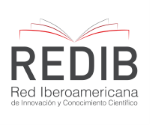Digital literacy to combat fake news and disinformation: the experience of JADiH, UFOB’s human rights extension project
DOI:
https://doi.org/10.51359/2675-7354.2022.253123Keywords:
hate speeches, fake news, democracy, digital literacy, digital activismAbstract
This experience report addresses the Young Activists for Human Rights (JADiH) outreach project, which aims to develop and promote a critical citizen participation highly engaged in the fight against fake news and hate speech, especially those disseminated online. Concerned with direct attacks on democratic and constitutional values and with the widespread use of social networks for racist, misogynistic, LGBTphobic, xenophobic and ableists practices, the project relied on scientific and academic dis-semination, as well as critical digital literacy as ways to combat fake news and hate speech. Through the communication channels of the research group Corpus Possíveis, JADiH reached thousands of people in several cities and countries and consolidated the partnership with the Graduate Program in Human and Social Sciences (PPGCHS/UFOB), further expanding its field of action through the largest event organized by the program, the Critical Society Forum.
References
CAMINHONEIROS realizam manifestações e bloqueiam rodovias federais da Bahia. G1 BA, 2021. Disponível em: https://g1.globo.com/ba/bahia/noticia/2021/09/09/caminhoneiros-realizam-manifestacoes-e-bloqueiam-rodovias-federais-da-bahia.ghtml. Acesso em: 28 jan. 2021.
DELMAZO, C.; VALENTE, J. C. L. Fake news nas redes sociais online: propagação e reações à desinformação em busca de cliques. Media & Jornalismo, Lisboa, v. 18, n. 32, p. 155-169, 2018. Disponível em: https://impactum-journals.uc.pt/mj/article/view/2183-5462_32_11. Acesso em: 29 jan. 2022.
FREITAS, M. T. Letramento digital e formação de professores. Educ. rev., Belo Horizonte , v. 26, n. 3, p. 335-352, dez. 2010. Disponível em: https://www.scielo.br/j/edur/a/N5RryXJcsTcm8wK56d3tM3t/abstract/?lang=pt. Acesso em: 9 abr. 2020.
GRUPO DE PESQUISA CORPUS POSSÍVEIS. Ei, você! Você sabe o que são fake news? Barreiras. 30 jun. 2021. Instagram: @corpus.possiveis. Disponível em: https://www.instagram.com/p/CQwsR_FDWgg/?utm_medium=copy_link. Acesso em: 28 jan. 2022.
LUCAS, C. H. de.; OLIVEIRA, D. S. A violência enquadrada: projetos culturais da extrema-direita global. Revista Interações Sociais, Rio Grande, v. 4, n. 1, p. 48-61, jan./jun. 2020. Disponível em: https://periodicos.furg.br/reis/article/view/11818. Acesso em: 27 jan. 2022.
MARTINS, A. C. L. Discurso de ódio em redes sociais e reconhecimento do outro: o caso M. Revista Direito GV, São Paulo, v. 15, n. 1, e1905, 2019 . Disponível em: https://www.scielo.br/j/rdgv/a/WPZBfgrv6Md957dSxz7Hh5h/abstract/?lang=pt. Acesso em: 4 abr. 2022.
OLIVEIRA, M. M.; GIACOMAZZO, G. F. Educação e cidadania: perspectivas da literacia digital crítica. EccoS Revista Científica, São Paulo, n. 43, p. 153-174, 2017. Disponível em: https://periodicos.uninove.br/eccos/article/view/7393. Acesso em: 29 jan. 2022.
ONU. Organização das Nações Unidas. Objetivos de Desenvolvimento Sustentável. 2022. Disponível em: https://brasil.un.org/pt-br/sdgs. Acesso em: 28 jan. 2022.
OPAS. Organização Pan-Americana Mundial da Saúde. Histórico da pandemia de Covid-19. [s.d.]. Disponível em: https://www.paho.org/pt/covid19/historico-da-pandemia-covid-19. Acesso em: 29 jan. 2022.
SANTOS, B. S. Para além do Pensamento Abissal: das linhas globais a uma ecologia de saberes. In: SANTOS, B. S.; MENESES, M. P. (Orgs.). Epistemologias do Sul. Coimbra: Edições Almedina, 2009. p. 23-71. Disponível em: https://www.icict.fiocruz.br/sites/www.icict.fiocruz.br/files/Epistemologias%20do%20Sul.pd. Acesso em: 28 jan. 2022.
SOARES, M. Novas práticas de leitura e escrita: letramento na cibercultura. Educação & Sociedade, Campinas, v. 23, n. 81. p. 143-160, dez. 2002. Disponível em: https://doi.org/10.1590/S0101-73302002008100008. Acesso em: 29 jan. 2022.













